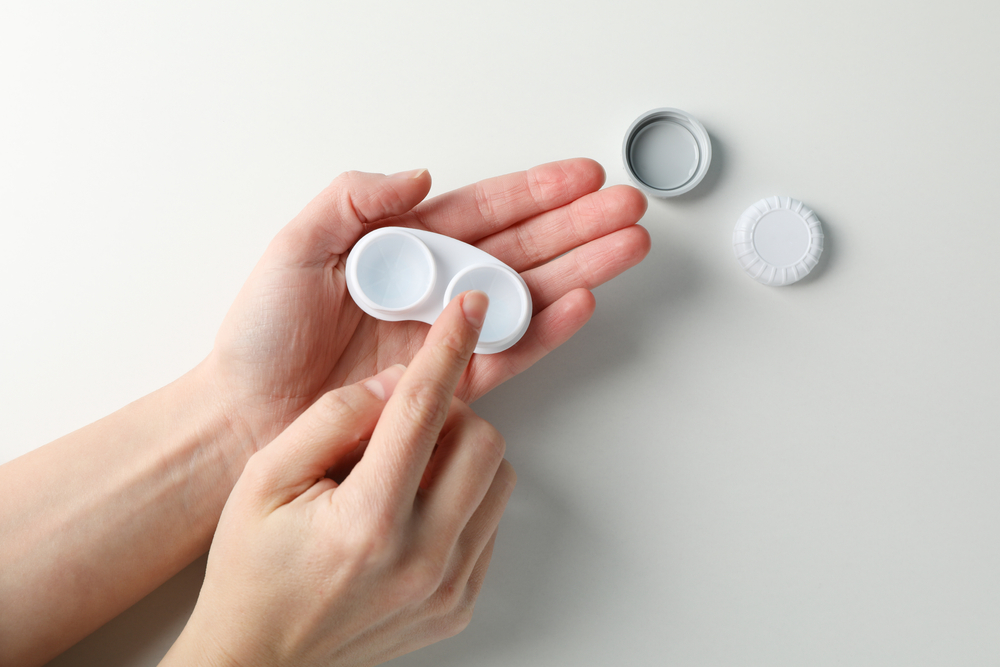
Contact lenses have been a game-changer in the field of optometry, revolutionizing the way we correct vision problems. Contact lenses can be broadly categorized into two: traditional contacts and specialty contacts. But how do they differ?
What Are Traditional Contacts?
Traditional contacts are the standard, most common type of contact lenses. They are primarily used to correct refractive errors such as myopia, hyperopia, and astigmatism. Traditional contacts come in two major types: soft contacts and hard or rigid gas permeable (RGP) contacts.
Soft contacts, made of soft, flexible plastics, are popular due to their instant comfort and are ideal for sports due to their fit and less likelihood of falling out.
On the other hand, RGP lenses, although not as comfortable initially as soft contacts, offer clearer, crisper vision and are more durable. Traditional contacts can be daily wear, which you remove at night, or extended wear, which you can sleep in.
Despite their widespread use, traditional contacts are not for everyone. They may not provide the desired level of comfort or clarity for people with certain eye conditions. That's where specialty contacts come in.
A Deeper Look into Specialty Contacts
Specialty contacts are custom-designed to address specific eye conditions that cannot be corrected adequately with traditional contacts. Specialty contacts come in various forms.
Scleral lenses, for instance, are larger than traditional contacts and vault over the entire corneal surface, making them ideal for people with irregular corneas.
Toric lenses are designed for people with astigmatism, as they have different powers in different meridians of the lens to compensate for the irregular shape of the cornea.
Key Differences Between Traditional and Specialty Contacts
The main difference lies in their application. While traditional contacts are a one-size-fits-most solution for common refractive errors, specialty contacts are tailored to meet individual needs, offering a solution for those who cannot achieve optimal vision with traditional contacts.
In terms of comfort, traditional contacts are generally more comfortable initially. However, specialty contacts, once the eyes are accustomed to them, can offer superior long-term comfort, especially for individuals with sensitive or irregularly shaped eyes.
Common Eye Conditions Addressed by Specialty Contact Lenses
Specialty contacts address a variety of eye conditions that traditional lenses can't. For instance, they're often used for keratoconus, a degenerative condition where the cornea thins and bulges into a cone-like shape, causing distorted and blurred vision.
Specialty lenses can also benefit people with severe dry eye syndrome. Traditional contacts may exacerbate dry eye symptoms, but certain types of specialty lenses, like scleral lenses, can help retain moisture and alleviate dry eye discomfort.
People with high refractive errors or those who've undergone corneal transplants or refractive surgeries like LASIK may also benefit from specialty contacts. In such cases, specialty lenses can provide clearer vision and a more comfortable fit than traditional contacts.
Role of an Optometrist
Choosing the right type of contact lens is crucial for your eye health and vision, and that's where the role of an optometrist becomes paramount. An optometrist will conduct a comprehensive eye exam to assess your vision and overall eye health. They'll consider various factors, including the shape of your eye, your lifestyle, your comfort, and any specific eye conditions you may have.
If you have an eye condition that traditional contacts can't adequately address, your optometrist may recommend specialty contacts. They'll guide you through the process, ensuring the lenses fit correctly and comfortably, and provide the necessary vision correction. The ultimate goal is to ensure optimal vision and eye health, and sometimes, that may mean opting for specialty contacts over traditional ones.
Conclusion
Both traditional and specialty contacts have their place in vision correction. While traditional contacts cater to the masses, specialty contacts fill the gaps, addressing unique eye conditions and providing a higher degree of customization. The best way to determine the right type of contact lens for your needs is through a comprehensive consultation with your optometrist.
To learn more on the difference between specialty contacts and traditional contacts or to determine which contacts are the right solution for your vision needs, visit DaVinci Eye Care at our office in Warminster, Pennsylvania. Call (215) 443-8580 to schedule an appointment today.







